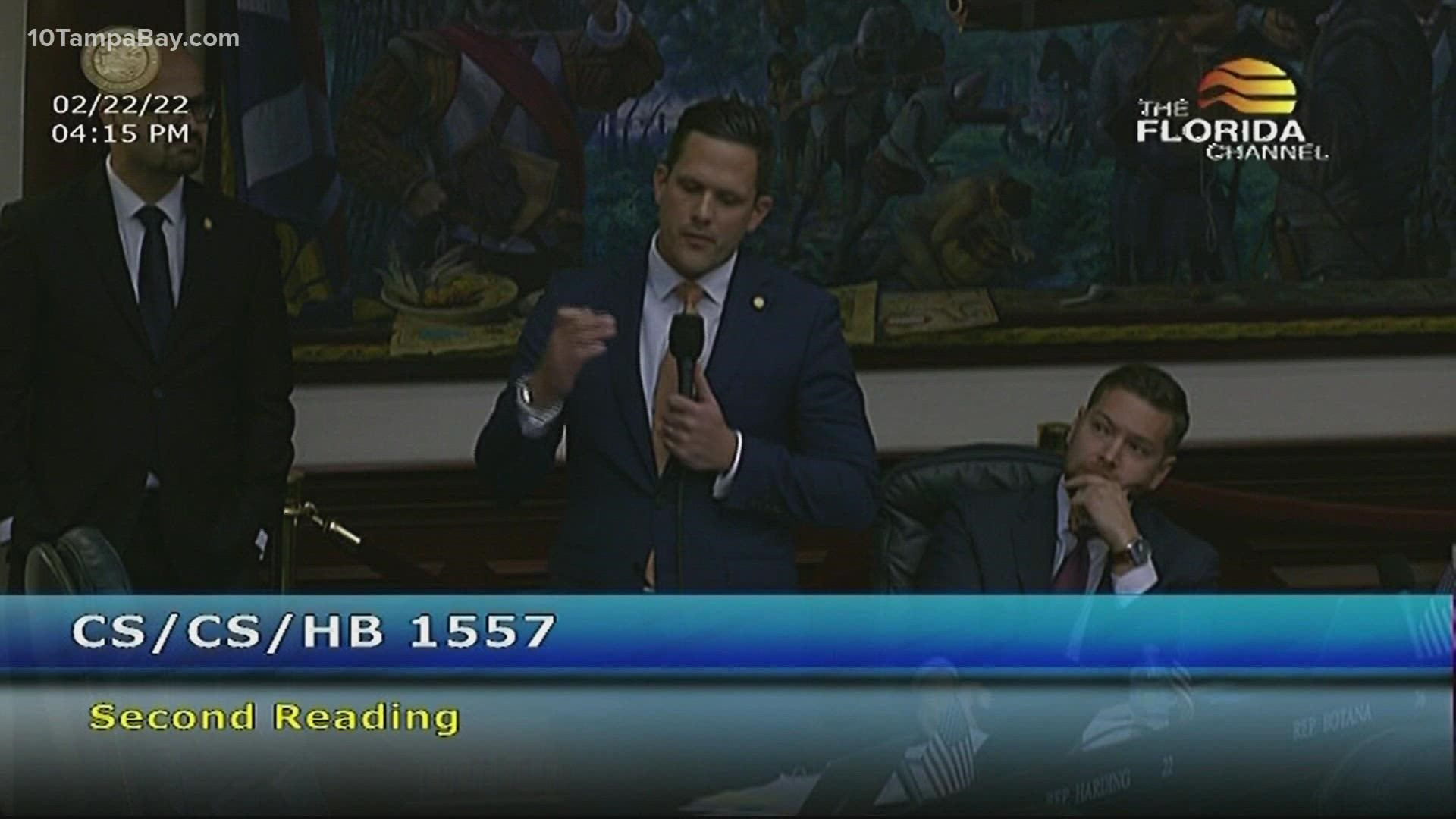TALLAHASSEE, Fla. — A controversial amendment to Florida's "Parental Rights in Education" legislation, which has been condemned as the "don't say gay bill," was withdrawn by its Republican sponsor Tuesday after critics argued it could forcibly out LGBTQ children.
The amendment placed a six-week time limit until certain information, such as if a student had a discussion about LGBTQ issues with school officials, would need to be disclosed to a parent.
House Bill 1557, as it's written, bars school personnel from discouraging or prohibiting the notification of parents or parental involvement in critical decisions affecting a student's mental, emotional or physical health or well-being.
Such information, however, could be withheld from a student's parents "if a reasonably prudent person would believe that disclosure would result in abuse, abandonment, or neglect."
But the amendment placed the time limit and mandated that school officials develop a "plan" to share that information with parents, regardless of whether the student could be subject to abuse or otherwise.
Democratic State Rep. Carlos Smith, the first openly LGBTQ Latino member of the Florida Legislature, on Monday tweeted this amendment "will have devastating consequences for our youth," calling it a "state-mandated outing of LGBTQ students to parents."
State Rep. Anna Eskamani, another Florida Democrat, filed her own amendment aimed at protecting LGBTQ students, allowing them to sue the Florida Department of Education if their "school reveals their sexual orientation to the student's parent or guardian" and "causes irreparable harm."
Proponents of the "Parental Rights in Education" legislation, which would bar classroom instruction about sexual orientation or gender identity in kindergarten through third grade, argue it's not age-appropriate conversation for younger students.
"My purpose with this is to give, really, some relief to the school staff that they're not responsible for every issue in every person's life," said Republican Sen. Dennis Baxley, who sponsored the Senate version of the bill.
Florida Gov. Ron DeSantis has previously said "I don’t want the schools to kind of be a playground for ideological disputes or to try to inject."
"At the end of the day, you know, my goal is to educate kids on the subjects—math, reading, science—all the things that are so important," the governor added at the time.
Harding has maintained that the bill would not prevent spontaneous discussions about the topics and said the legislation is meant to stop a district from integrating them into curriculum. Critics have said the language of the bill is broad enough to apply to any grade and could open districts to lawsuits from parents who believe any conversation to be inappropriate.
After much debate in the Florida House on Tuesday, the bill moved forward for a third reading. A different amendment that was successfully added would provide another process for parents to work out issues with the school before pursuing legal action.
The amendment put forward by Rep. Joe Harding would outline a process where a parent can bring their concern to their student's school first. The school would then have seven days to resolve the issue before a parent could escalate the concern to the school district for resolution. Once the concern reaches the school district, it has 30 days to either resolve it or document its reason for not taking action.
Should the concern still require a resolution by the parent, they can then take it to court or the Special Magistrate.
A vote on the bill is slated for Thursday.
The Associated Press contributed to this story.

